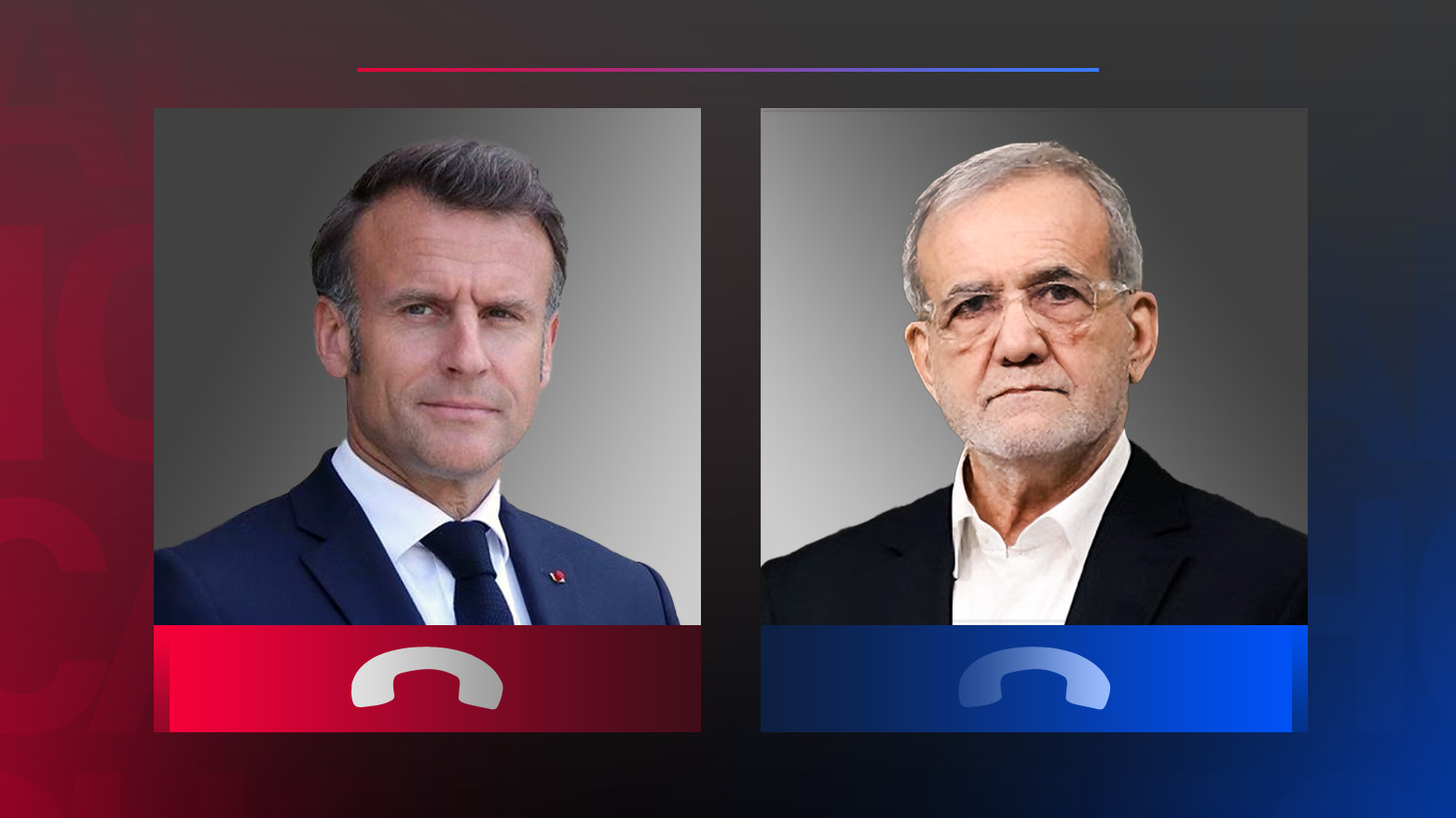Iran's Pezeshkian Tells Macron UN Nuclear Watchdog Cooperation Halted Over ‘Destructive’ Conduct
“The action taken by parliament members... is a natural response to the unjustified, unconstructive, and destructive conduct of the Director General of the International Atomic Energy Agency,” the Iranian president said.

ERBIL (Kurdistan24) — Iranian President Masoud Pezeshkian told French President Emmanuel Macron that Tehran suspended its cooperation with the United Nations' nuclear watchdog in response to what he described as the agency chief’s “destructive” behavior toward Iran, according to AFP.
The remarks were made during a phone call on Sunday evening, with Pezeshkian asserting that the move was a direct reaction to the actions of International Atomic Energy Agency (IAEA) Director General Rafael Grossi.
“The action taken by parliament members... is a natural response to the unjustified, unconstructive, and destructive conduct of the Director General of the International Atomic Energy Agency,” the Iranian president said, according to a statement released by his office on Monday.
Pezeshkian’s comments come amid growing tensions over Iran’s nuclear program, which has drawn international concern following recent revelations of uranium enrichment activities and the fallout from regional military escalations.
Pezeshkian further criticized what he called the IAEA’s "double standards," questioning why Israel — a non-signatory to the Nuclear Non-Proliferation Treaty (NPT) — has become the basis for the agency’s reporting, according to Iran’s state-run ISNA. He stressed that such discrepancies have created "numerous problems for regional and global security," calling on the agency to uphold the rights of member states and apply its regulations equally.
Pezeshkian also condemned the IAEA’s failure to respond to what he described as an unlawful Israeli attack on Iranian nuclear facilities, carried out with U.S. support during active negotiations with Washington.
In the phone call, Pezeshkian told Macron that Iran’s nuclear activities had been fully monitored by the IAEA, with cameras installed and inspections permitted, yet this transparency was met with sabotage and military assaults. He expressed deep frustration that the IAEA not only failed to condemn such attacks, but instead, in his view, legitimized them—damaging the Iranian public's trust in the agency. Pezeshkian warned that if the IAEA continues to ignore its own legal framework and remains silent in the face of aggression against its member states, then future cooperation will remain highly uncertain, ISNA reported.
In a related development, Iranian Foreign Ministry spokesperson Esmaeil Baqaei on Monday accused France of complicity in what Tehran calls an act of aggression against Iran, according to ISNA. Responding to a question from ISNA about France’s role in intercepting Iranian drones during the recent escalation, Baqaei pointed to recent remarks by the French defense minister, who confirmed that France had assisted the "Zionist regime" in its efforts.
“France’s admission that it participated in the Zionist regime’s aggression by preventing Iran from exercising its legitimate right to self-defense is, in fact, an acknowledgment of the French government’s role in this imposed war,” Baqaei said. “The French government must be held accountable, especially considering that it had previously denied any involvement.”
Baqaei added that France’s actions contradict its public position on neutrality and international law, and he emphasized that the support provided to Israel by Western powers only strengthens Iran’s resolve. “This also illustrates the strength of Iran’s armed forces, which stood firm against an aggressor supported by several other nations,” he noted.
The spokesperson’s remarks signal a further deterioration in diplomatic relations between Tehran and Paris, as Iran frames the recent confrontation not merely as a bilateral crisis with Israel but as a broader, Western-backed campaign against its sovereignty.
The IAEA has yet to respond publicly to the latest accusations, but Grossi has repeatedly urged Iran to grant inspectors greater access to nuclear facilities and clarify undeclared activities. Tehran, meanwhile, has insisted it is committed to peaceful nuclear development and accuses the agency of bias under Western pressure.
Sunday’s call with Macron reflects ongoing efforts by European powers to mediate and revive diplomacy amid escalating strain between Iran and the West over nuclear compliance and regional security dynamics.
Kamaran Aziz, News Writer at Kurdistan24 English, contributed to this piece
